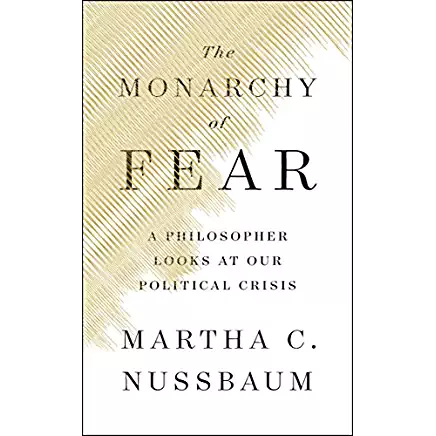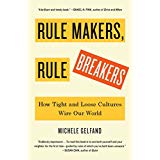They tell me you are wicked and I believe them, for I have seen your painted women under the gas lamps luring the farm boys.
And they tell me you are crooked and I answer: Yes, it is true I have seen the gunman kill and go free to kill again.
And they tell me you are brutal and my reply is: On the faces of women and children I have seen the marks of wanton hunger.
And having answered so I turn once more to those who sneer at this my city, and I give them back the sneer and say to them:
Come and show me another city with lifted head singing so proud to be alive and coarse and strong and cunning.
Flinging magnetic curses amid the toil of piling job on job, here is a tall bold slugger set vivid against the little soft cities;
Fierce as a dog with tongue lapping for action, cunning as a savage pitted against the wilderness…
Under the smoke, dust all over his mouth, laughing with white teeth, Under the terrible burden of destiny laughing as a young man laughs, Laughing even as an ignorant fighter laughs who has never lost a battle, Bragging and laughing that under his wrist is the pulse, and under his ribs the heart of the people, Laughing!
— from Chicago, Carl Sandburg,1914
As we try to understand what the hell is going on with the United States, one thing that keeps coming back is the idea of fear. Chicago may have been labelled the city of Broad Shoulders, but I think that for a couple of centuries, the US was the country of broad shoulders. Perhaps now, we are the country of distraction as opposed to the country of hope and promise.
And the cause of that distraction, from what needs to be done to things that just eat at the soul? Fear.
Two articles in this morning’s times piqued my interest. The first addresses the still festering wounds of the Great Recession; the second, the idea of a post-Christian conservatism. Taking a look at them might clarify a few things.
A lot of us still feel those wounds. I still have them, when I consider the delta between what I paid for my home is 2006 and what I can sell it for now, in a city I’m now accustomed to but still don’t care for, and a state I actively dislike. According to Zillow, I’m still $78 Grand upside down. This is not what I wanted for my family; but I had this idea that I was called, called to seek greater and greater challenges and opportunities, and that they would ultimately pay some dividends. Perhaps they did, but like the old trope about a good job needs a good education, my great education brought me…not so much.

M.H. Miller edits the NY Times T Magazine, part of it’s Sunday edition, covering art, style and related issues. He’s in his early 30s, and I’m sure that by any estimate of success, he should feel like he is one. He doesn’t, not really. He’s a casualty of the Great Recession, he graduated in June of of 200; when he got his diploma, his proud parents were losing their home to foreclosure, and had no clue as to what the future held. Neither, of course, did he. We’d come a long way from an alienated Benjamin Braddock in his graduation present Alfa Romeo, trying to navigate Ali McGraw, Ann Bancroft and the lure of “plastics.” He describes what the psychological and existential moment seemed like for himself and his parents.
My parents and I always imagined we’d find a way to pay for my college, through some clever combination of savings and scholarships — and, if all else failed, through one of the easily available high-interest student loans offered by major banks. All of this seemed practical enough, or at the very least as if it could be worried about later: My parents — again, like so much of the middle class — believed that any variety of worst-case scenarios didn’t happen to people like them. (Emphasis added) By March 2009, about two months before my graduation, I returned to my childhood home for spring break, aware that, short of an unexpected miracle, my parents would soon have nowhere to live.
Miller continues to describe the period since that graduation day, and how it is for him and for his parents. He describes reading an article in Zillow, the online home search site, that says the reason that home ownership is down lies in the decision by Miller’s demographic to rent luxury apartments as opposed to buy a home. Somehow, it seems Willow has gotten confused, assuming all these folks in the age bracket of Jared and Ivanka are just being selfish and self-centered. He’s not a fan of that type of thinking.
And so housing reports, sociological studies and the news media have blamed grim statistics, like the shrunken class of American homeowners, on an “entitled” millennial lifestyle, (emphasis added) in the process producing some of the most laughable pseudoscience in recent history.
Miller’s point is that he and his contemporaries are overburdened by the economic reality that grips the middle class. When people attend schools like NYU or George Washington or my own College of the Holy Cross, the cost of the freight is pretty high. But, even state schools have gotten really pricey. This isn’t new; what is new is that while college is more and more on the level of a HS diploma, the sine qua non of adult life, it creates a life of debt and near servitude that in effect robs the new graduate of the ability to take a risk, to take a chance, to bust out. What’s happened is pretty simple; the thing that’s been bugging the working class for thirty years is now sucking at the souls of the middle class.
Miller accepts his responsibility for his situation, but wonders maybe the blame should be shared with those who profited from the debacle. He turns to reflect on his graduation speaker, Hillary Clinton, who as Obama’s new Secretary of State, reflected the optimistic point of view that successful politicians and parents of investment bankers tend to have. He’s not angry with her, but reflects that a bit of awareness of the stakes and what happens when the system gets slapped sideways would have been more prescient.
She described the “extraordinary moment in history” in which all of us were receiving our degrees, a vague allusion to the country’s struggles at the time, many of which have only become worse in the intervening years: a simmering populist rage that threatened to cleave the country in two; a broken shadow banking system operating without regulatory oversight; a crowd of young voters in front of her who would be entering a bleak job market with an average debt of five figures a person and little hope of paying it off… then echoed a fantasy of boundless opportunity that had helped guide the country into economic collapse, deceiving many of the parents in attendance, including my own, into borrowing toward a future that they couldn’t work hard enough to afford.
The days when someone in Miller’s situation, or those of many other Americans,when we could just load up the wagon and leave a note on the door for anyone who cared to look reading “You can go to hell, I’m going to Texas” has long since passed. After all, a lot of folks get to Texas and find that it’s just a hotter, more congested, inner ring of hell…
 Martha C. Nussbaum is a professor of philosophy on the law law school faculty at the University of Chicago. She has written a lot about emotions, and has recently been turned by events to look at fear. She has some interesting insights and sees fear as a logical effect of a life that begins with it, at birth. You went from fetus in a perfect environment to something basically not perfect. Like it or not, you were dependent on something you didn’t understand to provide you with all the things that were just part of the environment you left to be born. At some level, her analysis makes greater sense of Dylan’s line from It’s All Right, Mom than any other explanation I’ve heard that “those not busy being born are busy dying.”
Martha C. Nussbaum is a professor of philosophy on the law law school faculty at the University of Chicago. She has written a lot about emotions, and has recently been turned by events to look at fear. She has some interesting insights and sees fear as a logical effect of a life that begins with it, at birth. You went from fetus in a perfect environment to something basically not perfect. Like it or not, you were dependent on something you didn’t understand to provide you with all the things that were just part of the environment you left to be born. At some level, her analysis makes greater sense of Dylan’s line from It’s All Right, Mom than any other explanation I’ve heard that “those not busy being born are busy dying.”
Because the infant is so dependent, she seeks more assurance.The more erratic and less dependable the resolution of its causes of unhappiness, or the satisfaction of the infant’s basic human needs, the more the infant wants assurance and dependability. Nussbaum sees the root of our psychological attitudes toward freedom or regimentation in the long term.

University of Maryland Psychology Professor Melanie Gelfand reinforces Nussbaum’s thought, as she describes her work in a column in a column in the September 17 edition of The Guardian. She extrapolates from the individual experience where Nussbaum sees the issue of fear tied to perceived scarcity of childhood resources to cultures as a whole. She sums up her work in a new book, Rule Makers, Rule Breakers: How Tight and Loose Cultures Wire Our World:
Tight-loose differences can explain global patterns of conflict, revolution, terrorism and populism. They operate as a universal faultline, causing cultural cohesion to buckle and rifts to open up. As threats arrive, groups tighten. As they subside, groups loosen. Threats don’t even need to be real. Our experiments show that, as long as people perceive a threat, the perception can be as powerful as objective reality. Threats lead to a desire for stronger rules – and obedience to leaders who promise to deliver a tight social order. Our work confirms that the strongest Trump supporters, as well as the supporters of Marine Le Pen in France, believe their country is threatened, whether by terrorism, illegal immigration, natural disasters or disease. They felt their countries were too loose, and they wanted tighter rules and stricter leaders.
Nussbaum and Gelfand both believe that when groups feel threatened, the want to be tightened; while Nussbaum sees this in terms of individual tendencies based on the sort of childrearing, Gelfand sees it as the cultural conditioning based on the history of the society. Her work considers regional differences, and the audiences most favorable for Trump come from regions historically more threatened by outside, irrational and complex sources. Thus, blue collar and white middle class voters in the south; farmers, ranchers and blue collar workers in the mid-west and the plains; anyone who suffers from the unexpected consequences of Globalization.
Of course, what happens when the strong, tight system arrives, led by a leader for whom constraints and empathy are alien concepts and whose key supporters and subordinates are self-serving inbreds, ingrates, liars and thieves? How does history unwind? Berlin 1945 might serve as one example; Trumpland might serve as another.
To be Continued…
Michael is a Retired Army First Sergeant, retired Corporate HR Executive, Occasional Adjunct Professor of Management, Organizational Effectiveness Free Range Consultant, Stoic Philosopher of sorts, Proud Heritage Irish Catholic Apostate…
He went from turning down fellowships to Graduate School after Holy Cross to Fort Jackson and a guy with few teeth from Georgia screaming at me to move his ass! And he enlisted after the draft ended. Twenty-three years active duty from 1974 to 1997 flipping between duty as REMF-Unit designated Grunt to Grunt Unit designated Smart Guy.
Last ten years either an Operations Sergeant Major (4 years) or First Sergeant (6 years). Made the CSM list a week after retirement papers went in.
He went into Human Resources because people said it was like being a First Sergeant.
Michael is retired these days, with time to think, write and occasionally enjoy life a bit. He reads five papers every day, lots of books on what interests me and pays attention. He has basic Socialist leanings. He is also a musician – fifty years plus with a guitar. Ex-marathon runner now lifting weights and grunting a lot to stay sort of in shape.
Michael is deadly serious about the issues but he likes to present with a lot of dry humor and satire. He discomforts the rich, offends the powerful and laughs at the pompous. So, stay awake and pay attention, or you’ll miss the jokes.
He refers to himself as a Progressive with an anarchist tendency. Think Bobby Kennedy Democrat at home with Sinn Fein; either a saintly advocate of sweet reason and justice or an arrogant self-righteous SOB with a traditional First Sergeant’s vulgar mouth and dislike of anyone’s rules but his own. That’s Michael Farrell
All content herein is owned by author exclusively. Expressed opinions are NOT necessarily the views of VNR, authors, affiliates, advertisers, sponsors, partners, technicians, or VT Network. Some content may be satirical in nature.
All images within are full responsibility of the author and NOT VNR.
Read Full Policy Notice - Comment Policy




























How about mentioning parasitical jooish cultural tyranny, including debt slavery, financial thievery with impunity, and cultural subversion? If we can’t see and have the courage to state that there is a jooish problem, we will only continue spiraling into the abyss. For some salutary enlightenment see E Michael Jones on youtube, for example,
“The locusts have no leader, yet they attack in formation.” (Proverbs 30:27)
Comments are closed.